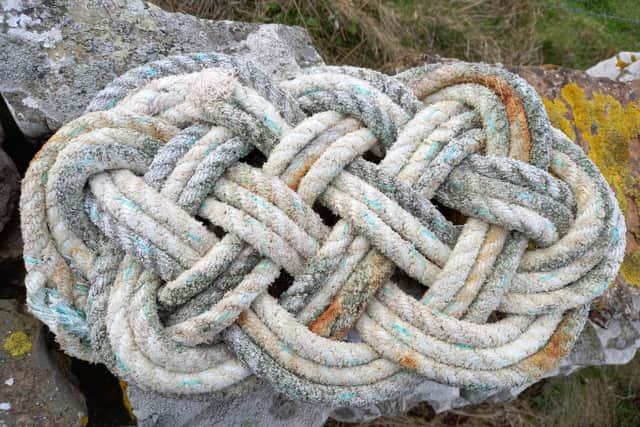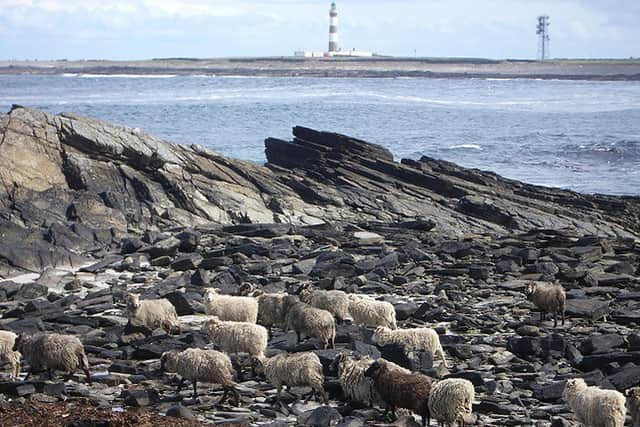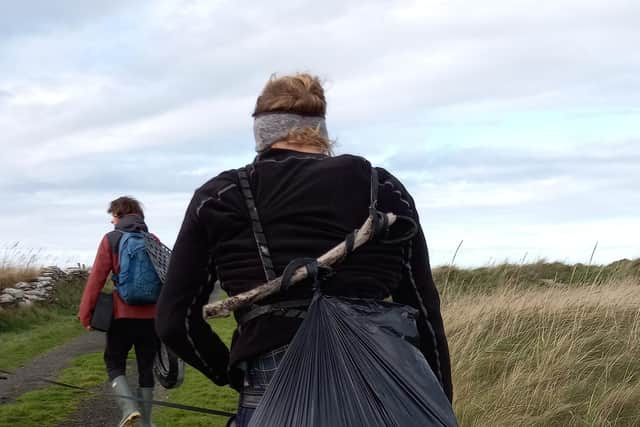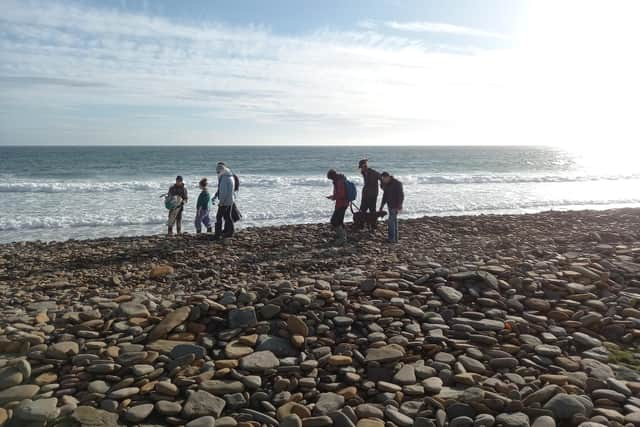Tiny Scottish island community turns tide on beach plastics
Islanders on North Ronaldsay in the Orkney Isles, which has a population of around 65 people, has sought its own solution to a very modern problem by building a Beach Plastics Recycling Centre to turn the rubbish into something useful again.
The centre comes after years of beach litter picks revealed the extent of the plastics problem. The island has over 13 miles of coastline with new deposits of marine litter, such as buoys, ropes and creels, regularly washing in, along with toothbrushes, the odd shoe and single-use water bottles. A plastic unicorn has been one of the star finds.
Advertisement
Hide AdAdvertisement
Hide Ad

A crowdfunder and backing from Calor’s community fund raised £9,000 for the recycling centre, with islanders now taking delivery of a plastics shredder, which turns the material into pellets, and an extruder that melts it into a “toothpaste-type” substance. That substance is then moulded into items such as bowls, tiles and perhaps even furniture and fenceposts, all of which will be sold to raise money for the ongoing recycling operation.
Alexandra Wright, director of Transition North Ronaldsay, the community-owned company behind the recycling centre, said: "Hundreds of years ago there used to be a lot of wood washed up from shipwrecks and it was always considered really important to islanders. You see the wood in the roofs of barns here. It’s gorgeous.
"In the last century, there was timber washing up. It would be transported on open deck and would sometimes get washed off .
"All these things were important for the island and that is what we are trying to do with the plastics – make it useful again.”


One of the island’s famous seaweed-eating sheep was spotted trying to eat a piece of plastic packaging while seals have been tangled in ropes and nets, Ms Wright said.
It is hoped, in time, the island will be able to raise enough money from the sale of its recycled wares to employ a plastics ranger.
"We would really like to provide someone with a little job,” said Ms Wright, who works at the North Ronaldsay Bird Observatory, as well as keeping a croft with her partner. The couple moved to the island four years ago from Yorkshire.
"We all work on little jobs on the island,” she said. “It fits in well with crofting.”
Advertisement
Hide AdAdvertisement
Hide Ad

Doormats are being hand-woven from the fishing ropes following tuition from Stromness craftsman Mark Cook and are now being sent to those who supported the crowdfunder.
Ms Wright said: "The mats are lovely, and they still smell of the sea. That is actually the kind of recycling that we really like, as it doesn’t use any further energy.”
She added: "We are also looking for similar ways to recycle nets, perhaps hammocks or hay feeders for our animals.”
Bowls and tiles will be the first products to be made at the recycling centre, with hopes sheets of recycled plastic can also be made.


Ms Wright said: "We would like to make little pieces of furniture and hopefully plastic fencing posts, which won’t rot like the wooden ones.”
A message from the Editor:Thank you for reading this article. We're more reliant on your support than ever as the shift in consumer habits brought about by coronavirus impacts our advertisers.
If you haven't already, please consider supporting our trusted, fact-checked journalism by taking out a digital subscription.
Comments
Want to join the conversation? Please or to comment on this article.
